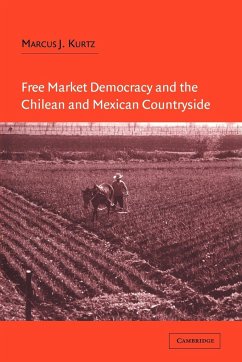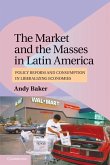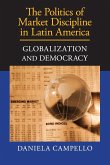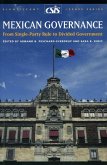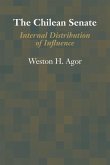This book examines the relationship between free markets and democracy.
This book examines the relationship between free markets and democracy. It demonstrates how the implementation of even very painful free-market economic reforms in Chile and Mexico have helped to consolidate democratic politics without engendering a backlash against either reform or democratization. This national-level compatibility between free markets and democracy, however, is founded on their rural incompatibility. In the countryside, free-market reforms socially isolate peasants to such a degree that they become unable to organize independently, and are vulnerable to the pressures of local economic elites. This helps to create an electoral coalition behind free-market reforms that is critically based in some of the market's biggest victims: the peasantry. The book concludes that the comparatively stable free-market democracy in Latin America hinges critically on its defects in the countryside; conservative, free-market elites may consent to open politics only if they have a rural electoral redoubt.
Review quote:
"Cogently argued, drawn from wide social science analytical perspectives, and complete with an extensive bibliography, Kurtz's book is a valuable contribution to Latin American studies. A truly fine piece of academic analysis...Essential."
J.A. Rhodes, Luther College, Choice
"...this book makes an important contribution to the study of democratization and the political economy of market reforms. It merits close reading by those concerned with both." - The Americas, Mark Eric Williams, Middlebury College
Table of contents:
Acknowledgements; Part I. The Framework and Theoretical Argument: 1. Posing the right questions; 2. The sectoral foundations of free market democracy; Part II. The Cases: 3. Neoliberalism and the transformation of rural society in Chile; 4. Social capital, organization, political participation and democratic competition in Chile; 5. The consolidation of free market democracy and Chilean electoral competition, 1988-2000; 6. Markets and democratization in Mexico: rural politics between Corporatism and Neoliberalism; Part III. Conclusions and Implications: 7. Political competitiveness, organized interests, and the democratic market; References; Index.
Hinweis: Dieser Artikel kann nur an eine deutsche Lieferadresse ausgeliefert werden.
This book examines the relationship between free markets and democracy. It demonstrates how the implementation of even very painful free-market economic reforms in Chile and Mexico have helped to consolidate democratic politics without engendering a backlash against either reform or democratization. This national-level compatibility between free markets and democracy, however, is founded on their rural incompatibility. In the countryside, free-market reforms socially isolate peasants to such a degree that they become unable to organize independently, and are vulnerable to the pressures of local economic elites. This helps to create an electoral coalition behind free-market reforms that is critically based in some of the market's biggest victims: the peasantry. The book concludes that the comparatively stable free-market democracy in Latin America hinges critically on its defects in the countryside; conservative, free-market elites may consent to open politics only if they have a rural electoral redoubt.
Review quote:
"Cogently argued, drawn from wide social science analytical perspectives, and complete with an extensive bibliography, Kurtz's book is a valuable contribution to Latin American studies. A truly fine piece of academic analysis...Essential."
J.A. Rhodes, Luther College, Choice
"...this book makes an important contribution to the study of democratization and the political economy of market reforms. It merits close reading by those concerned with both." - The Americas, Mark Eric Williams, Middlebury College
Table of contents:
Acknowledgements; Part I. The Framework and Theoretical Argument: 1. Posing the right questions; 2. The sectoral foundations of free market democracy; Part II. The Cases: 3. Neoliberalism and the transformation of rural society in Chile; 4. Social capital, organization, political participation and democratic competition in Chile; 5. The consolidation of free market democracy and Chilean electoral competition, 1988-2000; 6. Markets and democratization in Mexico: rural politics between Corporatism and Neoliberalism; Part III. Conclusions and Implications: 7. Political competitiveness, organized interests, and the democratic market; References; Index.
Hinweis: Dieser Artikel kann nur an eine deutsche Lieferadresse ausgeliefert werden.

